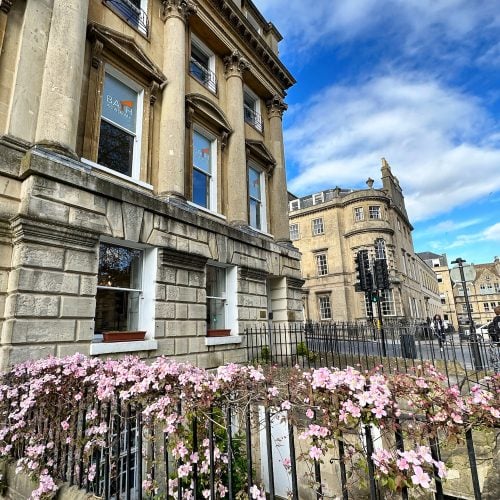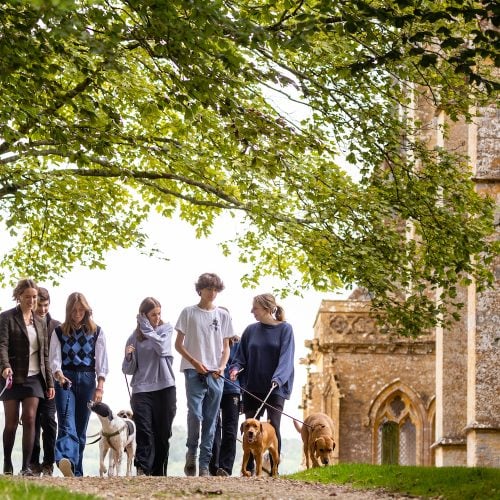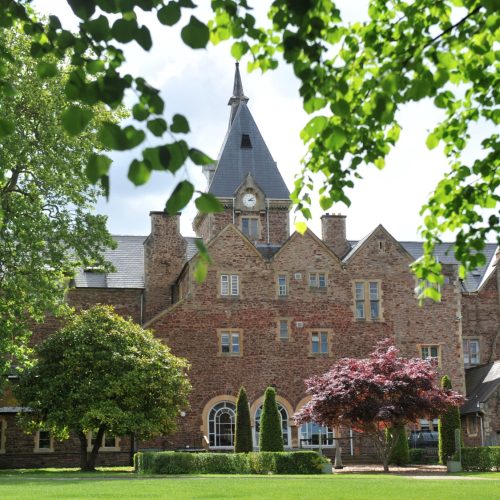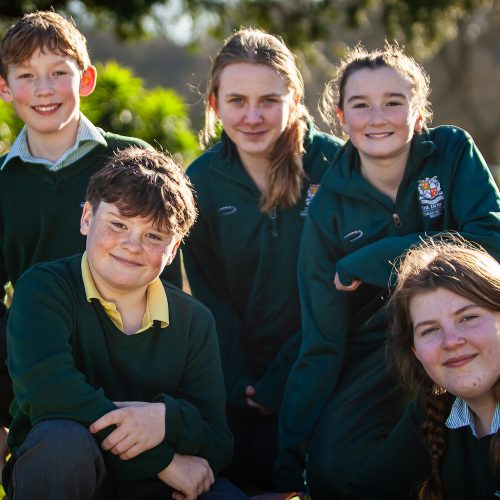Downside School, near Bath
This Catholic co-ed day and boarding school for 11-18 olds has Benedictine values, is steeped in history and tradition but is keeping ahead of the game (you should see their fab new Sixth Form Centre).
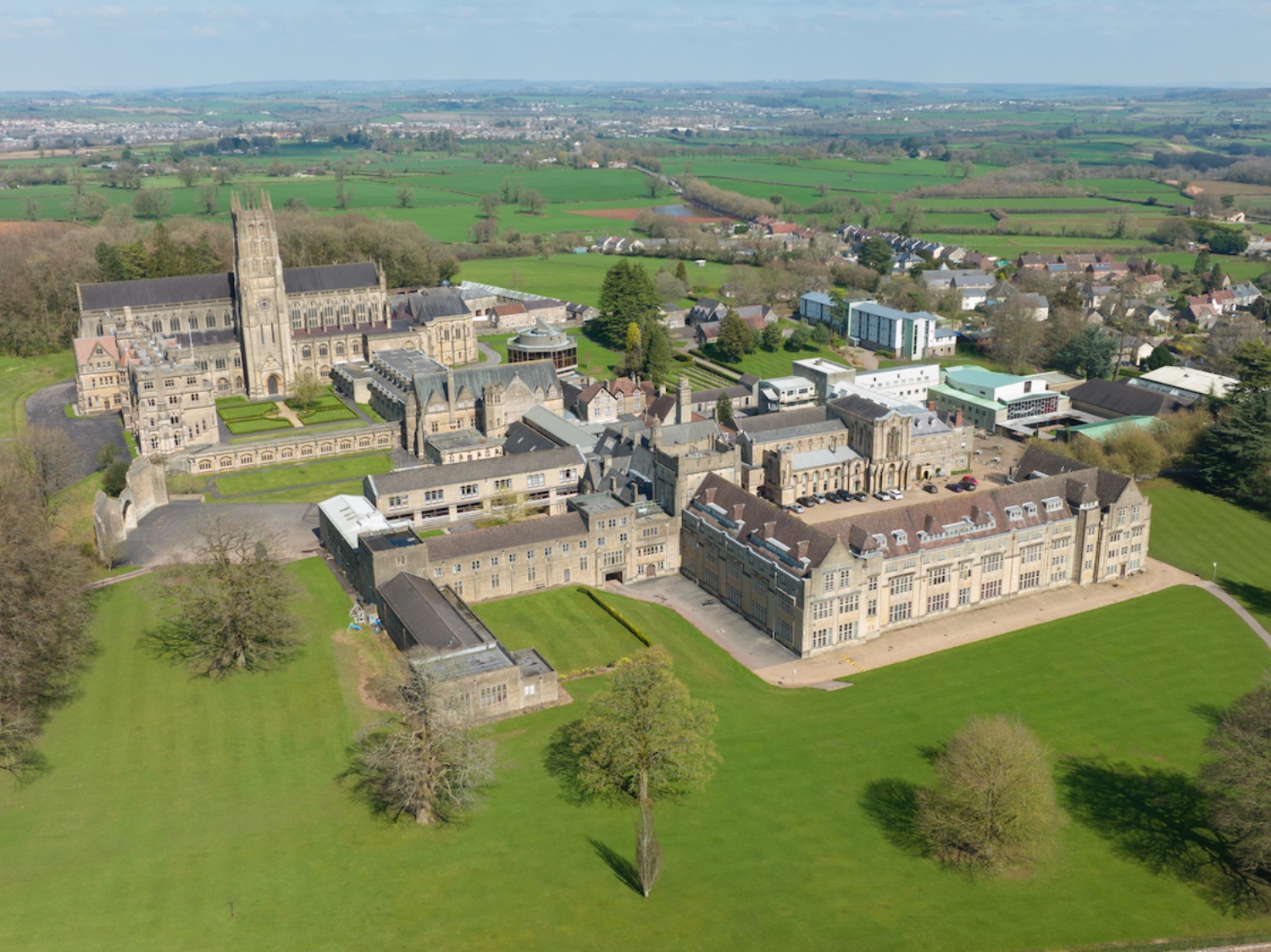
WHAT, WHERE?
An independent Catholic day and boarding school for girls and boys aged 11 to 18 set in 500-acre grounds in the village of Stratton-on-the-Fosse, on the edge of the Mendip Hills, just 12 miles from the World Heritage City of Bath. As you drive through the village down the Fosse Way, the ancient Roman road linking Exeter and Lincoln, Downside School seems to go on forever.
The school was founded in France in 1607, by exiled English and Welsh monks from the Benedictine community of St Gregory the Great, as a Catholic boys’ school. Monks and school returned to England in 1795, initially based in Shropshire, before moving to the present location in 1814 and becoming co-ed in 2005. The monks left in 2022 but the school is making the most of parts of their amazing monastery, with a stunning new Sixth Form Centre, which opened in September 2024, in the former refectory.
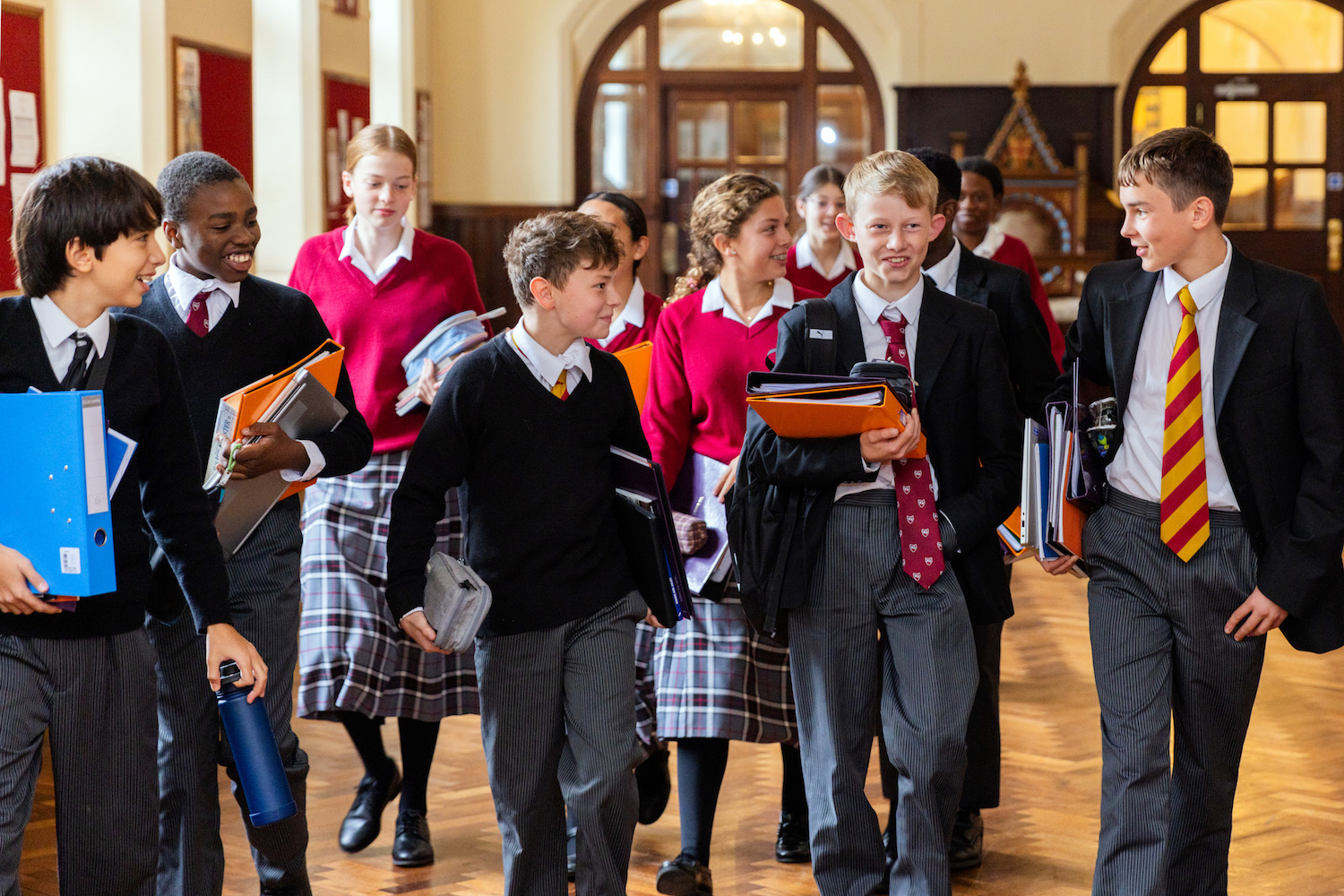
Education is based around the core values of St Benedict – more of which later on. Around with 60% of the pupils are Catholic but the school welcomes pupils and families of all faiths or none.
There are currently around 300 pupils on the roll from the UK and abroad; with 28 nationalities, it’s a rich and diverse community.
FACILITIES
The school’s big and rangy with impressive buildings and towers, including The Old House – built in the 18th century – at the heart.

It’s an atmospheric, peaceful place, with parquet flooring, wood-panelled walls, cloisters and corridors with names like the Court of Arches – all very traditional. But then you suddenly come across a state-of-the art recording studio or a huge and amazing interactive Periodic Table installation in the Science dept.
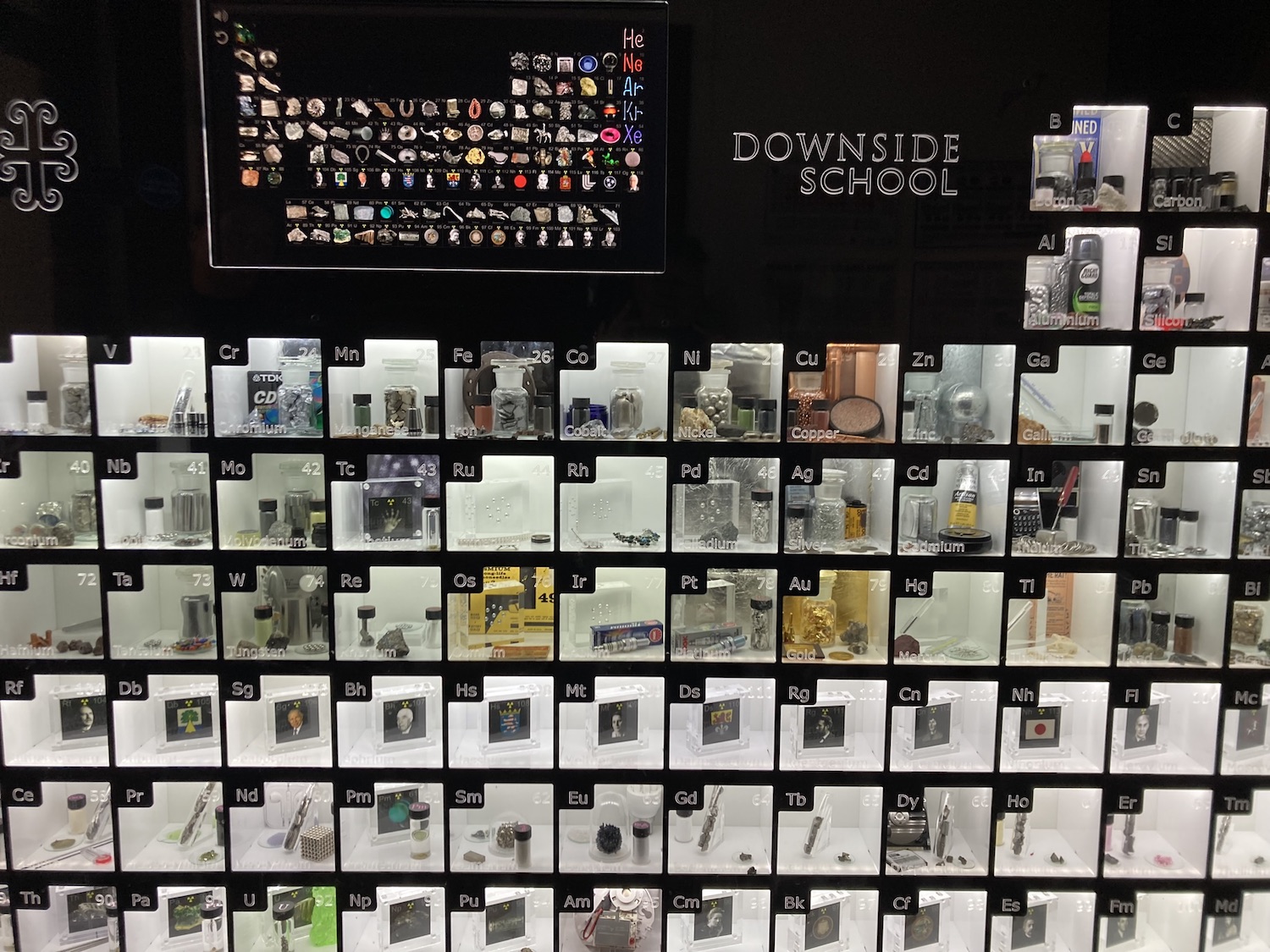
You shouldn’t judge a school by its chapel but the Abbey Church (partly designed by Giles Gilbert Scott of Battersea Power Station fame) is truly, madly, deeply glorious. When the Schola Cantorum, the UK’s oldest Roman Catholic school choir, are singing, and during events like the candlelit Advent service, it must be spine-tinglingly atmospheric.

The bells and whistles Performing Arts Centre has a 450 seat theatre with a dress circle; productions include Chicago, Legally Blonde and a Juniors’ 45-minute version of The Tempest.
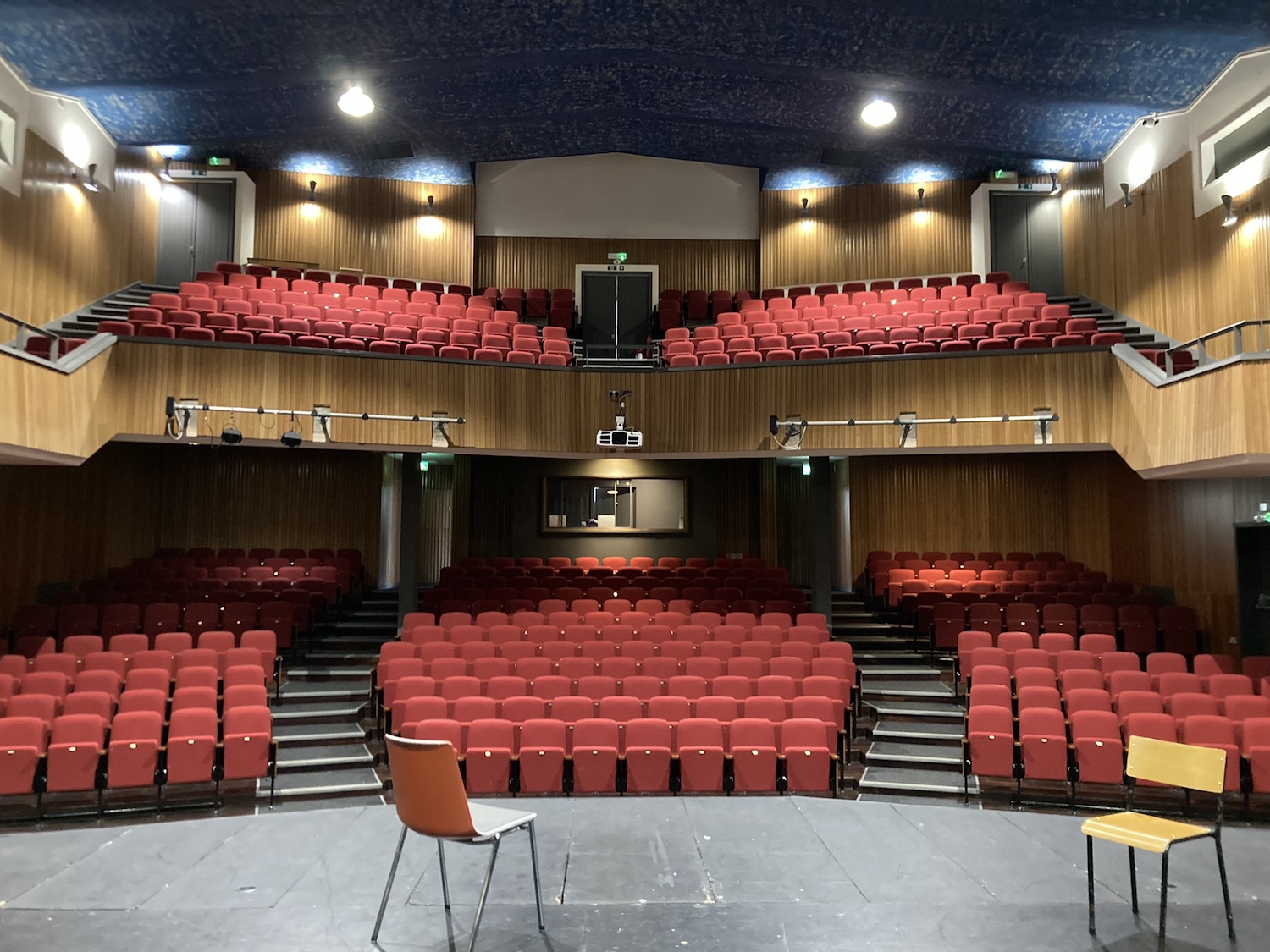
There’s a state-of-the-art recording studio and music rooms. Music is big here with four choirs singing Mass weekly in the Abbey Church, an orchestra, concert band, pipe band, rock band and teachers’ band, and numerous other groups including jazz, strings, percussion and brass. There are over 160 individual music lessons a week – violin, piano, harp, tuba, bagpipes – you name it, they play it. A musical parent donated 12 pianos – including a Steinway – there’s one in every House. Rather unusually, there are two 100% organ scholarships awarded each year.
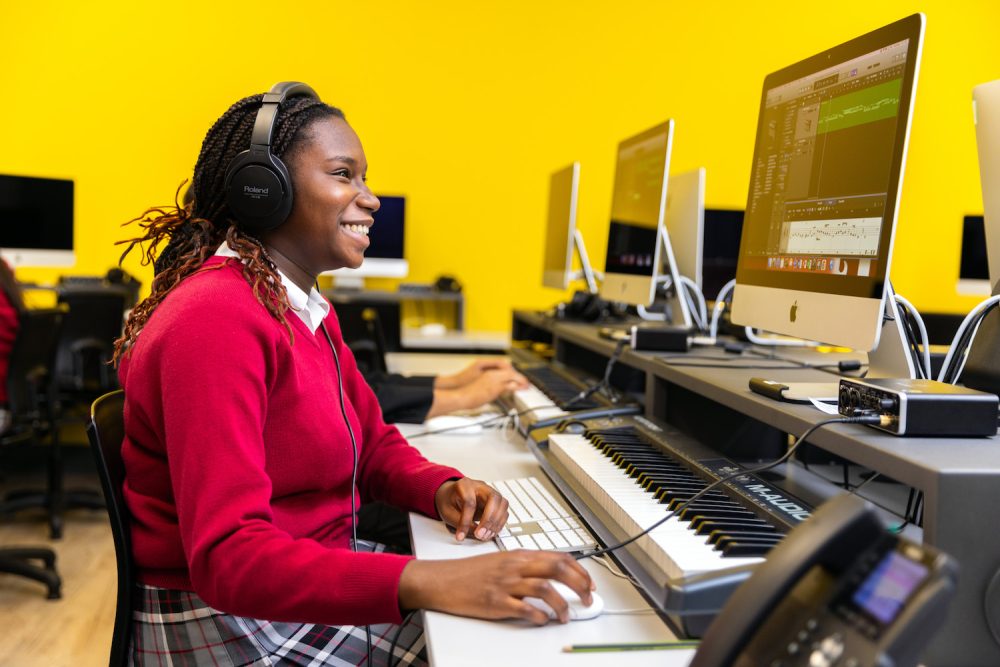
Tailoring the work to talents and interests of individual pupils, whether that’s advanced drawing, ceramics, screen printing or textiles, the art block is well-equipped with an A1 etching press, Mac suite, print studio – and an artist in residence, currently Eloise Grandfield.
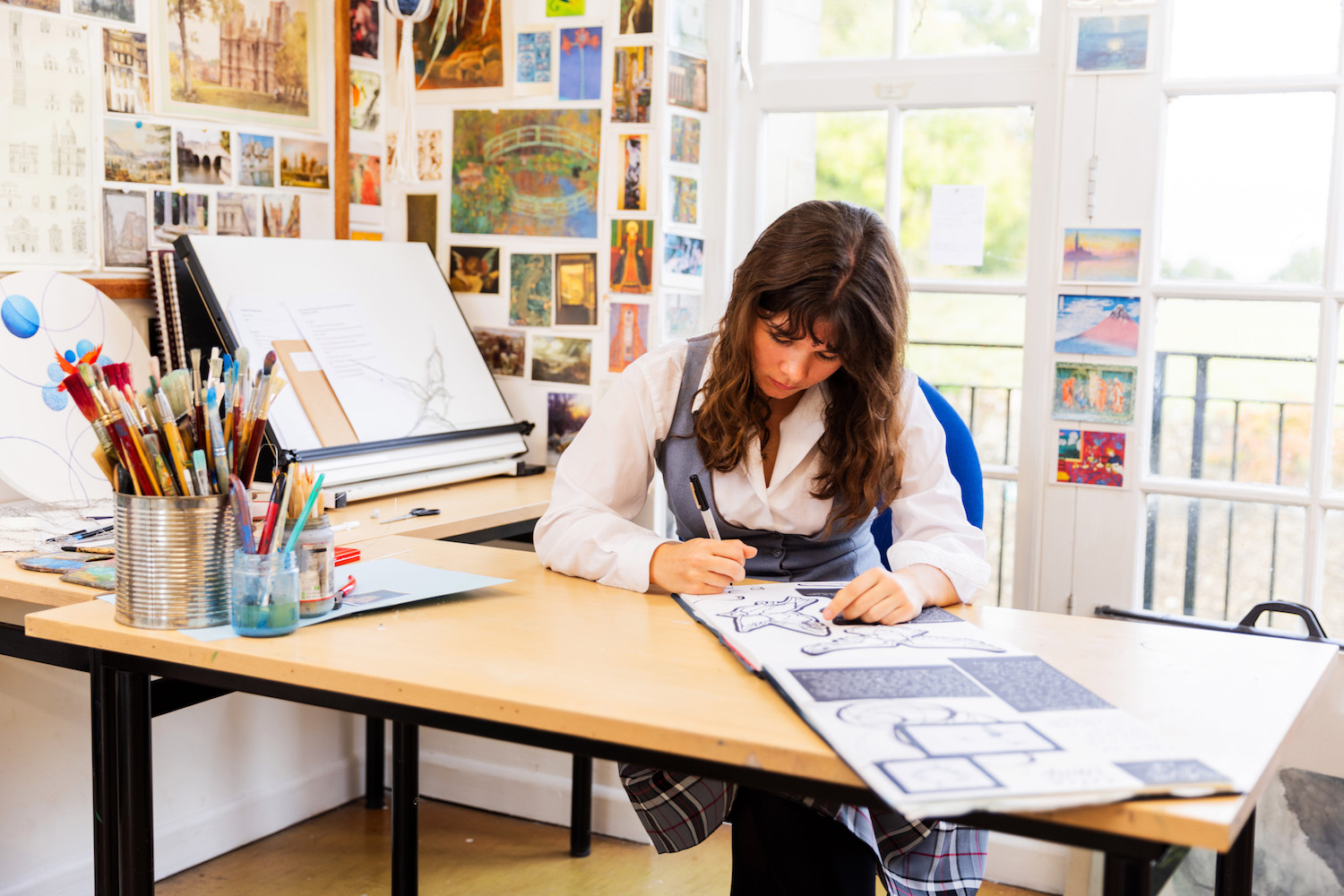
Sixth Formers have their own studio spaces – very cool – and a school trip around Parisian art galleries sounds fun.
Design Tech is also impressive with metal working workshop, 3D printers, laser cutters, subliminator press (had to ask – it’s for printing on textiles).
You half expect to find Harry Potter and his chums in the Petre Library.
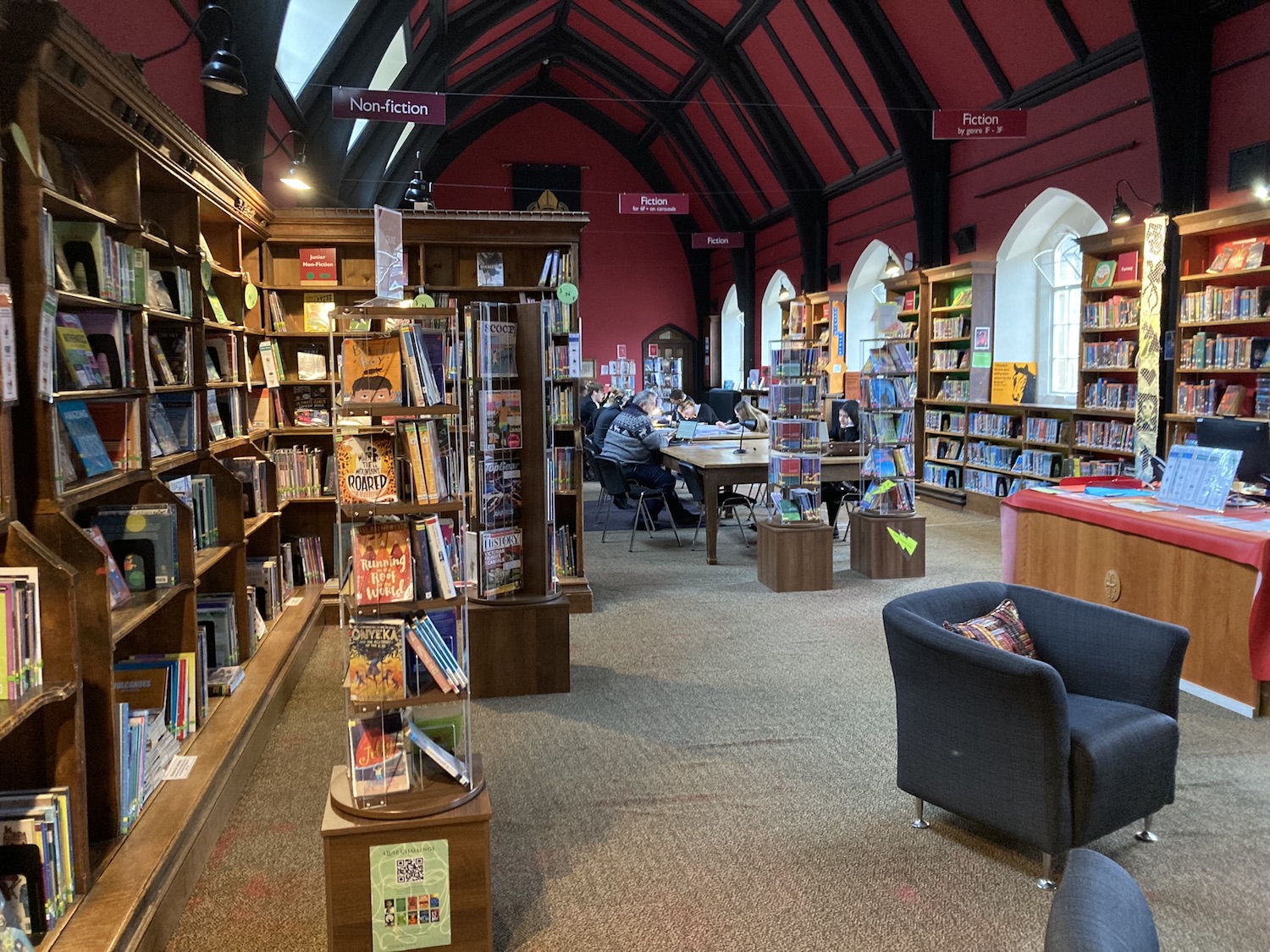
Food is an important part of wellbeing at Downside. Staff and pupils help themselves cafeteria style to an excellent array of food (lots of inventive stuff for vegans and veggies from award-winning caterers Holroyd Howe) and eat in the Potteresque Main Refectory. Snacks and drinks are available at other times of day in the more contemporary Downside Weld Café. The student council are involved with developing the menu and they have brilliant-sounding special events like Japanese-themed suppers, Chinese New Year and street food evenings.
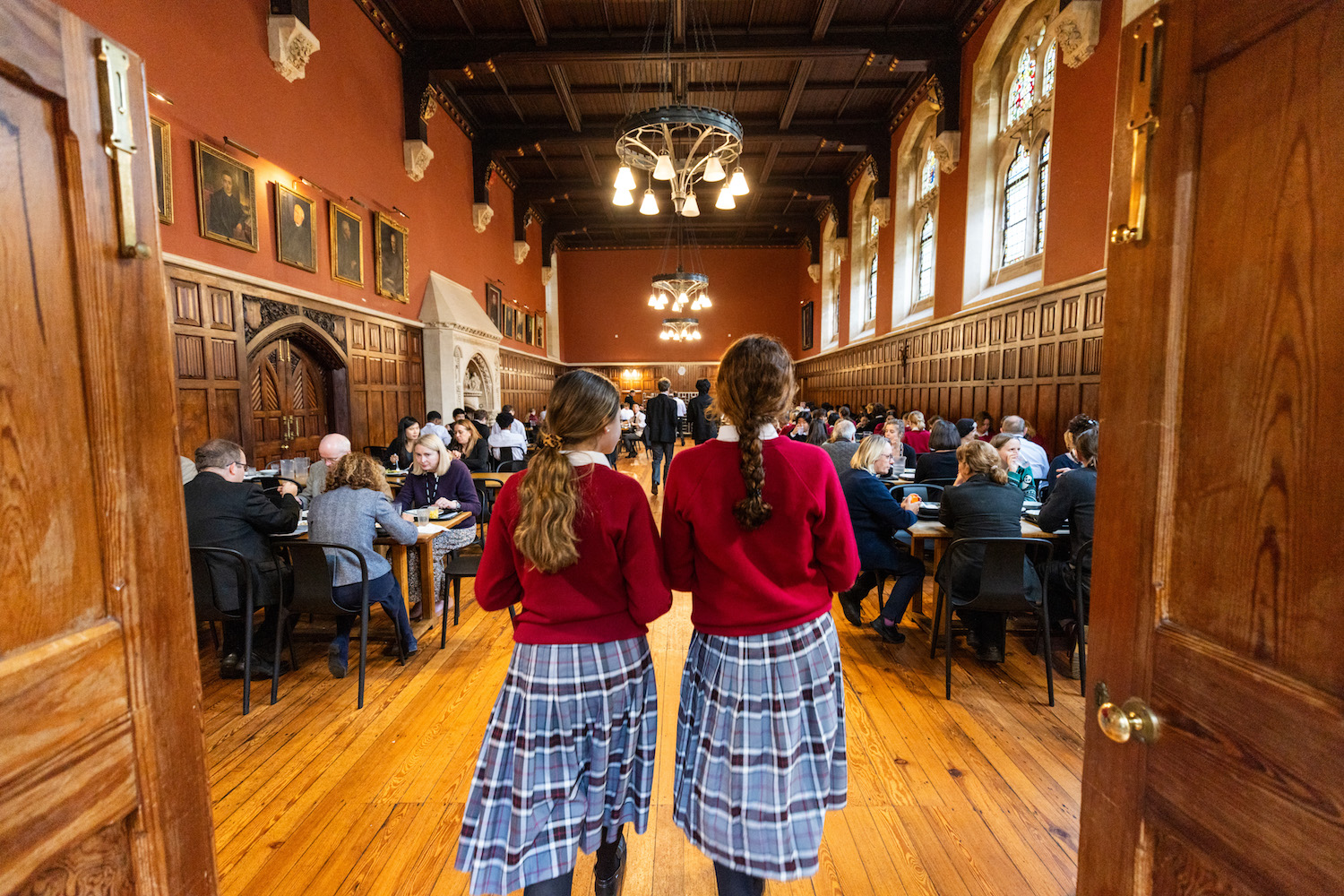
SIXTH FORM
When the monks moved out, they left their large monastery buildings, including an historic library filled with learned tomes, behind. The former refectory and large vaulted corridor running alongside have now been transformed into a fabulous new Sixth Form Centre. The corridor has become a calm and spacious study area with wooden tables and chairs designed with a nod to the monks and to the original mid-century build.
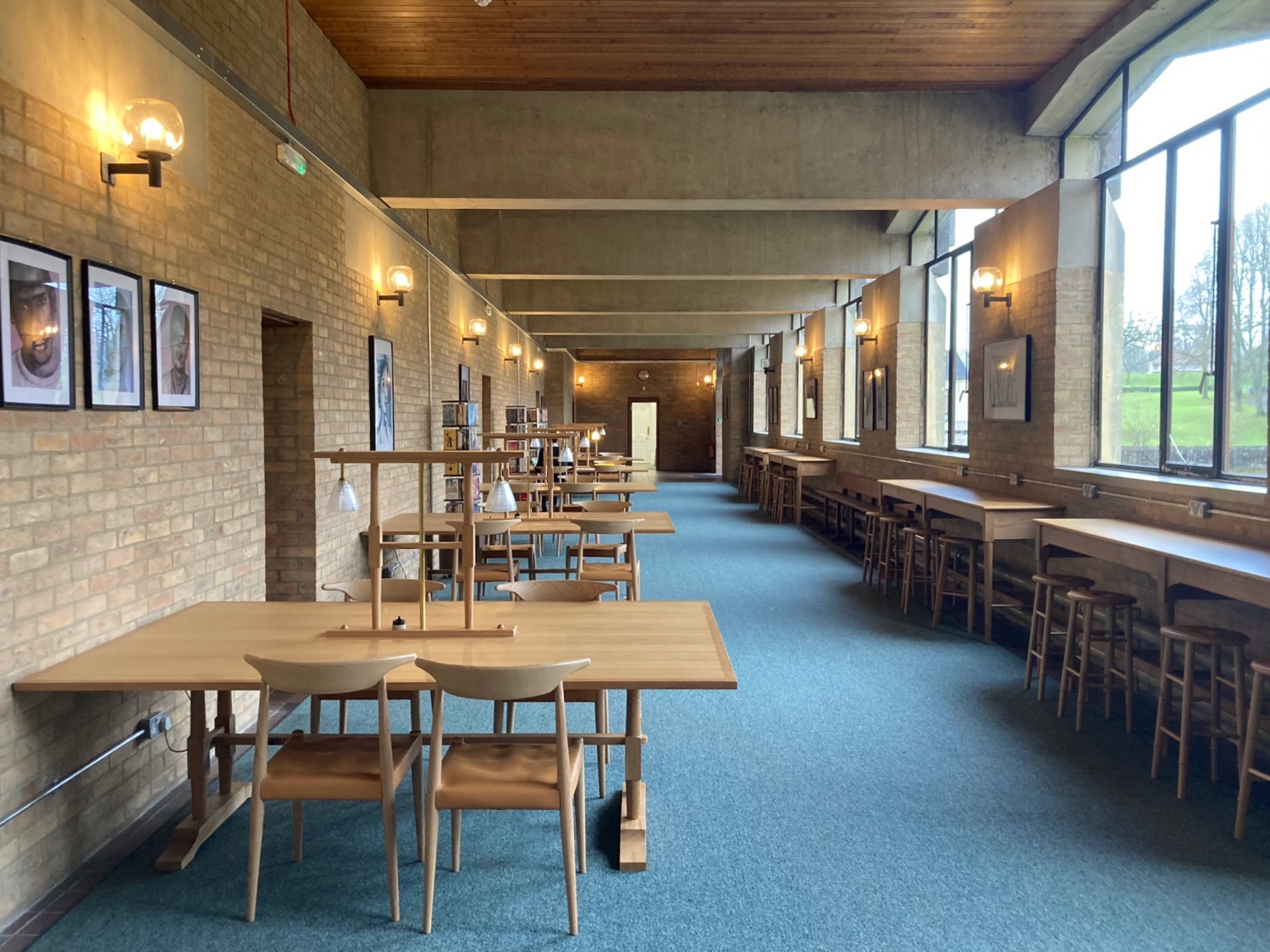
The light-filled common room is vast, with original windows and sound absorbing ceiling (those monks were clever), large wooden tables for study, stylish blue armchairs for chilling, student art on the walls, vending machine and tea/coffee/toast making area – and a full-size snooker table (donated by a former pupil). In true collaborative Downside style, the Lower Sixth and Fifth Formers were consulted on its design and facilities and surprise, surprise, they absolutely love it.
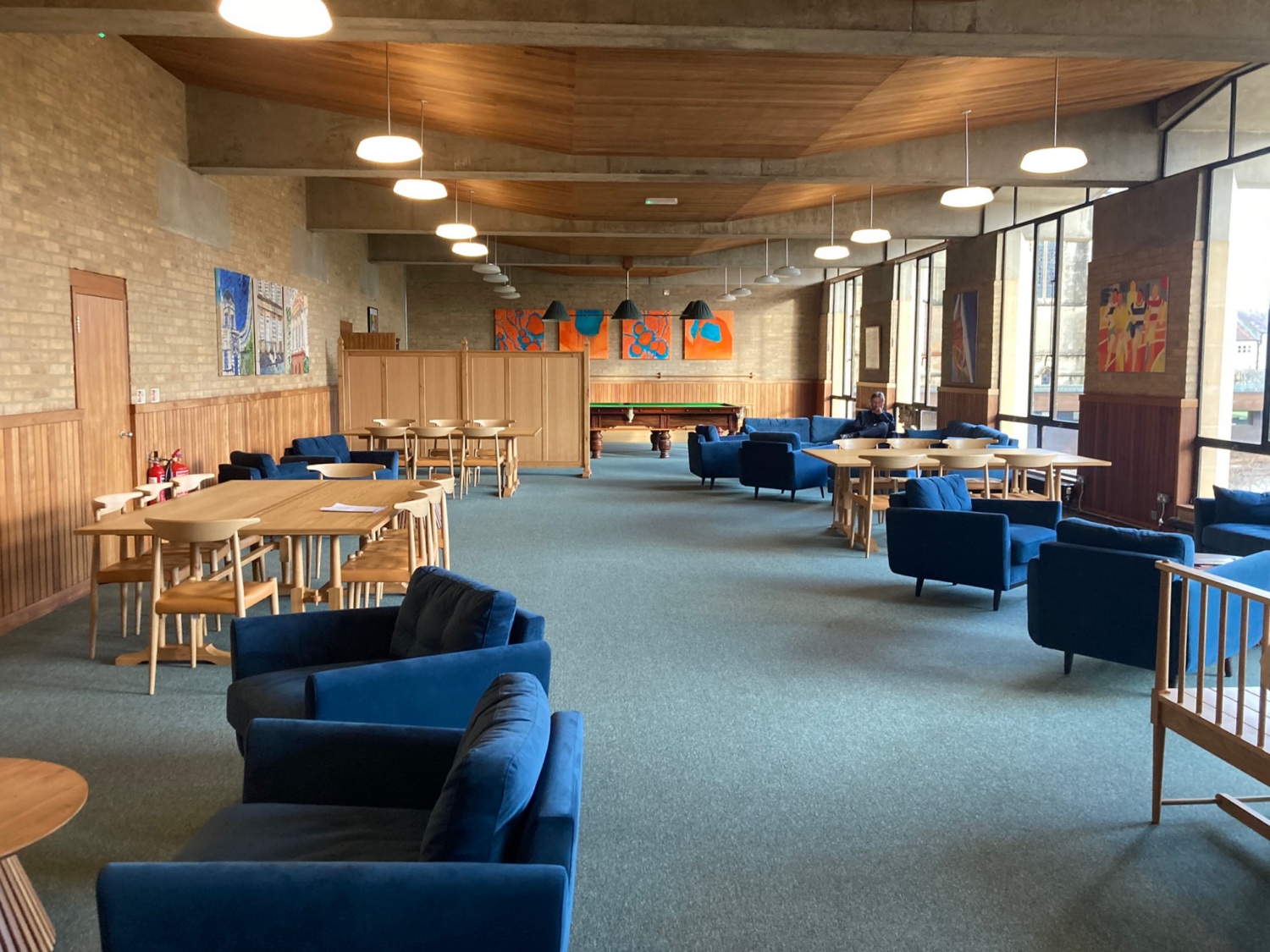
The 120 Sixth Formers come here in between lessons from around 8am to 7.30pm, before heading back to their Houses for evening activities with everyone else.
SPORTS
Sports facilities are extensive with vast sports fields as far as the eye can see – 500 acres in all. An indoor swimming pool, magnificent sports pavilion surrounded by rugby, cricket and football pitches, multiple tennis and netball courts, an all-weather hockey astroturf, glass-backed squash courts, a fitness suite for personalised 1:1 training and bespoke strength and conditioning plans for sports scholars, and a whopper of a sports hall.
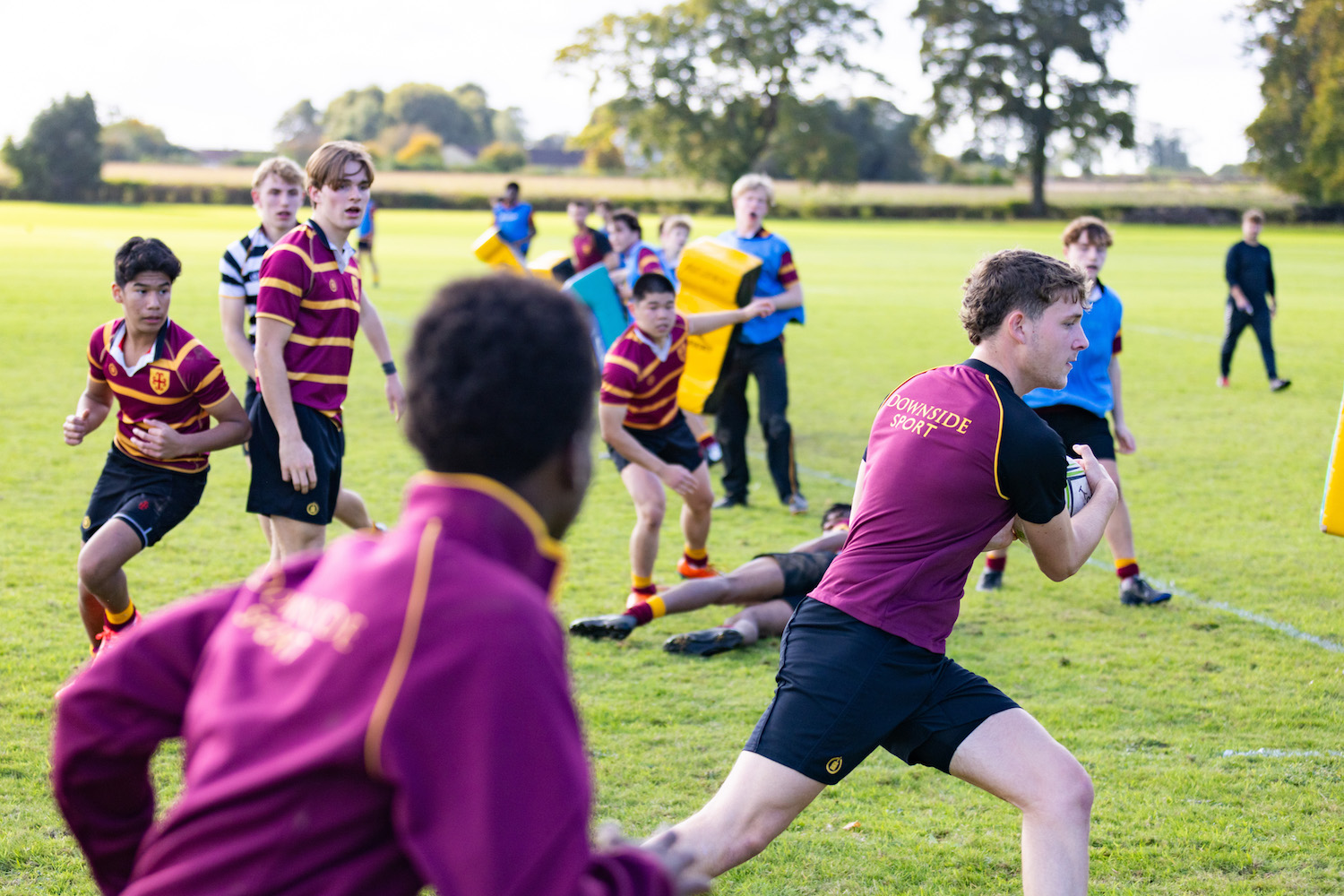
The facilities are good enough for the likes of Somerset County Cricket Club the Somerset County Netball Academy and Bath Rugby Academy, all of whom have used the sports facilities for training and competitive matches. Norton Radstock Swimming Club use the pool as their ‘home’ venue, with talented swimmers from across the area training three times a week.
Main sports for boys include rugby, hockey, cricket and tennis; for girls hockey, netball, tennis and cricket, with footie an option for both in Years 11 – 13. There are competitive programmes in badminton, basketball, table tennis, volleyball, athletics, water polo and cross country, with pupils achieving district, county and national level honours.
A golf development and performance programme open to all is popular and successful. Pupils train three times a week and play in regular matches across the South West and nationally. The school golf captain finished 5th at the European Junior Championships in 2023.
Lots of interaction with the local community with regular sports festivals and competions involving local primary schools, where sports scholars can develop their coaching skills.
ACADEMICS
Entry is test-based. Hero subjects are STEM, performing arts, sports and languages. Linguists take note: French, German, Spanish, Latin and Greek are on the curriculum and there are private lessons in Mandarin, Italian and Russian. Other subjects include Environmental Science, Classical Civilisation, Computer Science, Enterprise & Entrepreneurship BTEC, Information Technology BTEC, Drama & Theatre, Politics and Psychology.
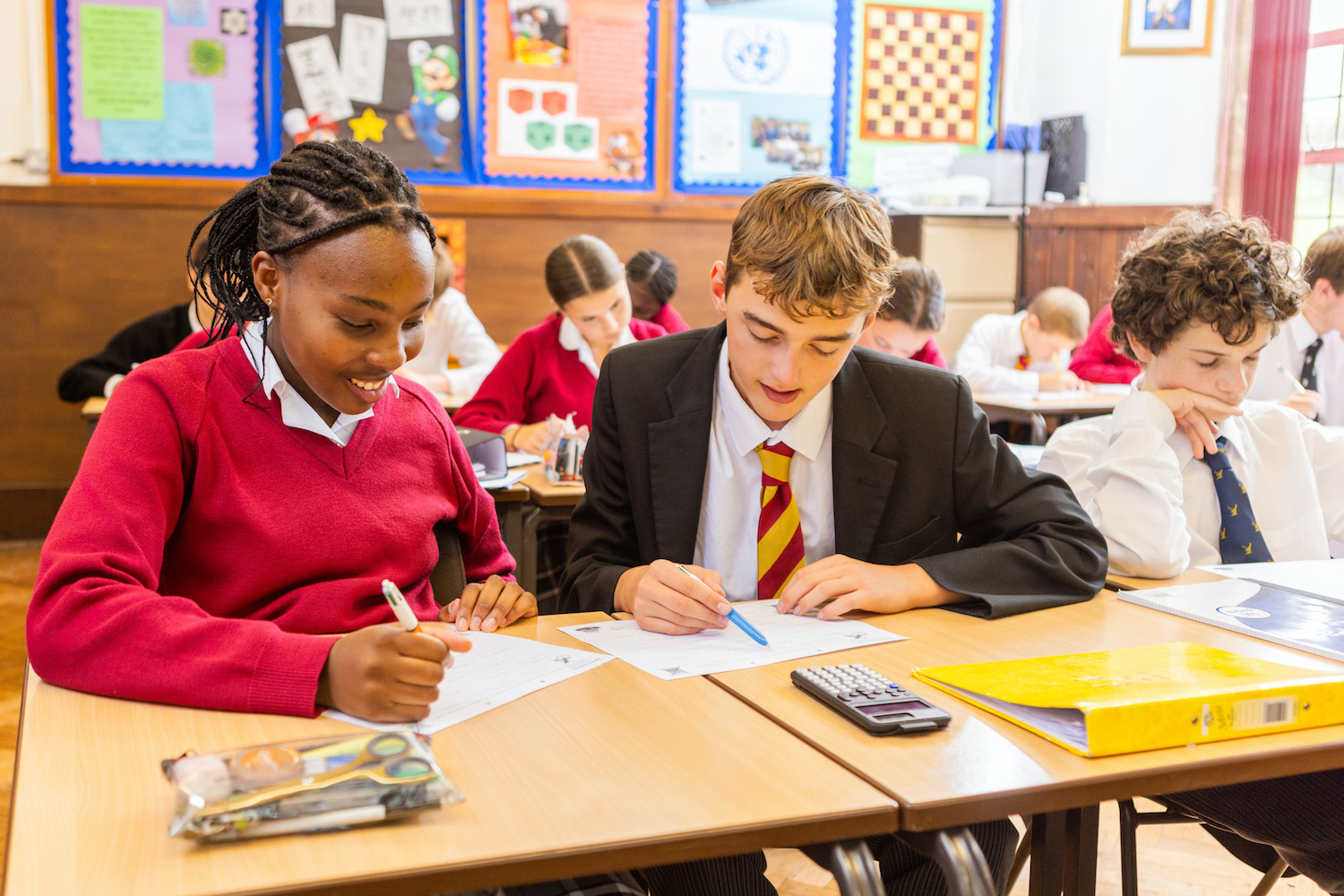
2024 results: GCSE: Over a quarter of the grades were grade 8 or 9, with nearly half of all grades grade 7 or above. A levels: over 21% achieved A or A* in three or four subjects. In Latin and Greek, all achieved A*. Lower Sixth pupils who submitted an EPQ all achieved an A* or A grade, with one pupil scoring full marks for a complete musical, including libretto, score and script (wow!). Leavers go on to mainly Russell group universities.
In term of learning support: there are diagnostic tests for all junior pupils; pupils with specific issues are monitored and offered specialist support; and each department offers weekly support clinics.
PASTORAL CARE
The network of house parents, house mistresses and masters, tutors (eight pupils per group, counsellor, chaplin, medical centre staff and Head of Pastoral) keeps everyone safe and happy. Pupils and staff talk about the school having a spirituality, faith and a strength. It’s a welcoming, embracing, accepting place where pupils can be themselves.
HEAD TEACHER
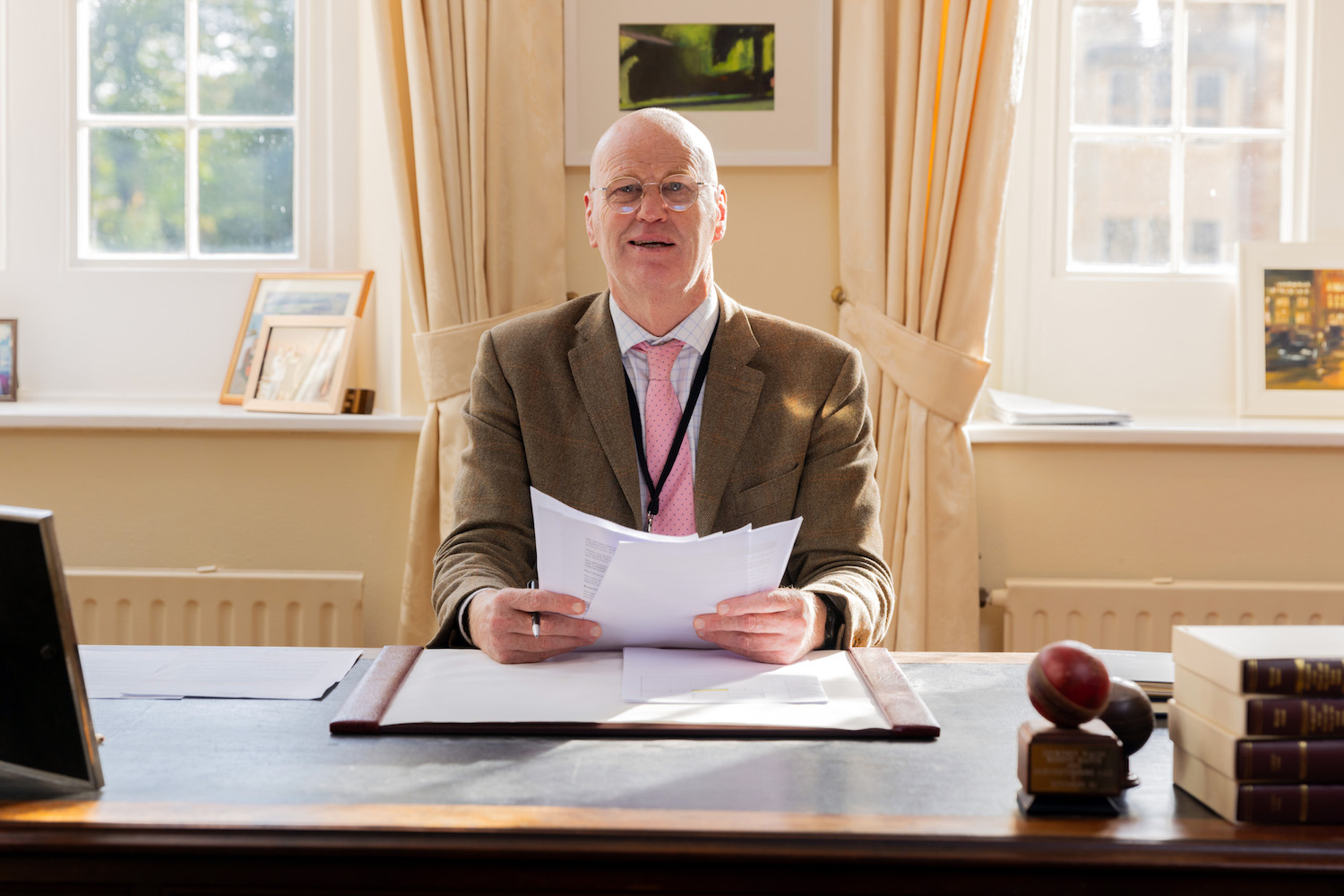
Andrew Hobbs took the helm in 2018 after 10 years as Deputy Head, previously at Canford School, with a degree in Classics from Magdalene College, Cambridge. He emphasises that, whilst results are celebrated, they are the by-product of the school’s Benedictine values on which the ethos and culture is based. He makes clear to the pupils that they are valued for who they are and not defined by what they achieve. Pupils don’t have to be the best but to try and do their best. He talks about working in collaboration with parents and sees their roles as gardeners and children as plants: you provide the right ingredients and cultivate the garden, and see what grows. The school’s religious foundation is there to support pupils rather than something which is imposed upon them, yet Catholicism runs through the school culturally, allowing faith to be explored, understanding how to relate to others, developing a strong spiritual life and to live a life fully lived.
REPORTS
See the latest reports from the Independent Schools Inspectorate (ISI), equivalent to Ofsted in the state sector and the Catholic Schools Inspectorate here. The latter awarded the school ‘Outstanding’ across all categories and described the level of pastoral care as ‘exemplary’.
WHAT ELSE?

This is a school based on the fundamentals of Benedictine values including: welcome and hospitality; listening; reverence; humility; teaching and learning; personal discipline; care for others; building community; and stewardship – which run through all aspects of life at the school.
There is all-school Mass on Sundays and religious holidays and voluntary Mass every day for those who wish to attend. Sixth Formers can go on a pilgrimage to Lourdes in the summer. A Retreat Day is open to all.
A full-time chaplaincy is supported by a lay Benedictine group from Chile called the Manquehue Community. Their weekly Lectio Divina ‘communities of spiritual friendship’ meetings are very popular – and not just because of the free pizzas.
Ethos, individual development and contribution to the School are all part of their Scholarship programme.
BOARDING
Originally a boarding school, today around three-quarters of pupils are boarders. Day and boarding pupils share two girls’ boarding houses and four boys’ – no separate day or boarding houses here. Pupils say they’re not really aware of who’s a border and who’s not. First, Second and Third Form boys join Powell House, before moving up to one of three senior boys houses: Barlow, Roberts or Smythe. Girls join Caverel House at 13 or Isabella House from 11 to 18 years. Each is headed up by a house mistress or master who live on site, alongside house parents who take care of day-to-day housekeeping and are always on hand for a chat.
I had a good nose around Isabella House. Home to around 76 girls, luckily they’ve a whopping common room with plenty of squashy sofas and a separate ‘cinema’ (aka TV) and karaoke room (Downside pupils love their karaoke). There are kitchens for snacks or communal cooking activities and a laundry (where older girls see it as a privilege to do some of their own washing – it’s all part of developing independence).
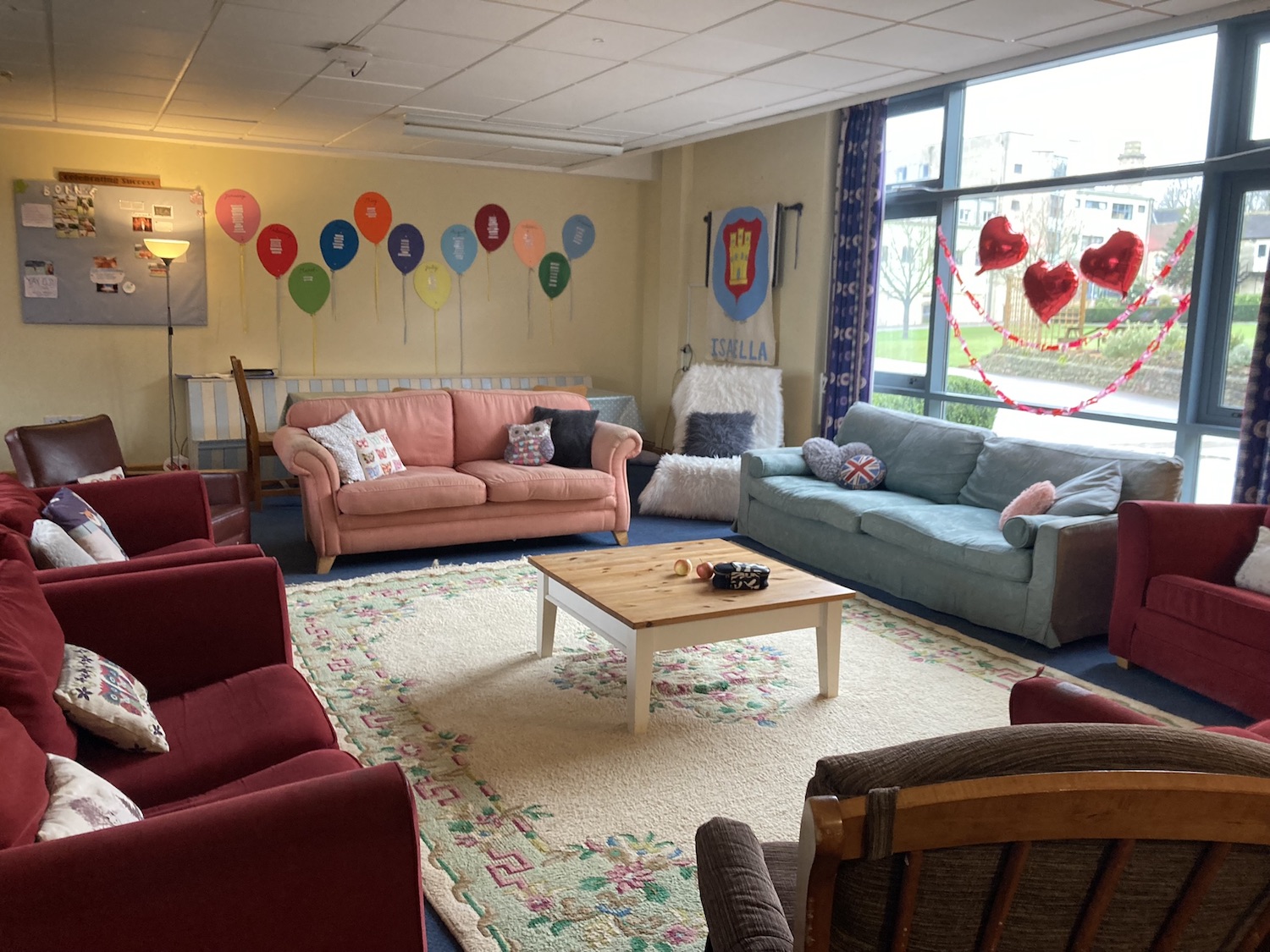
Younger girls share dorms, where there are always a bed or two kept for day pupils over-nighting; there’s a 2 or 3 night-a-week boarding option called Day Plus. Sixth Formers have individual, good-sized study bedrooms, some of which are ensuite. Day pupils have dedicated workspace and desks and can stay at school until 9pm, eating a meal together, hanging out in the House or involved with activities or prep
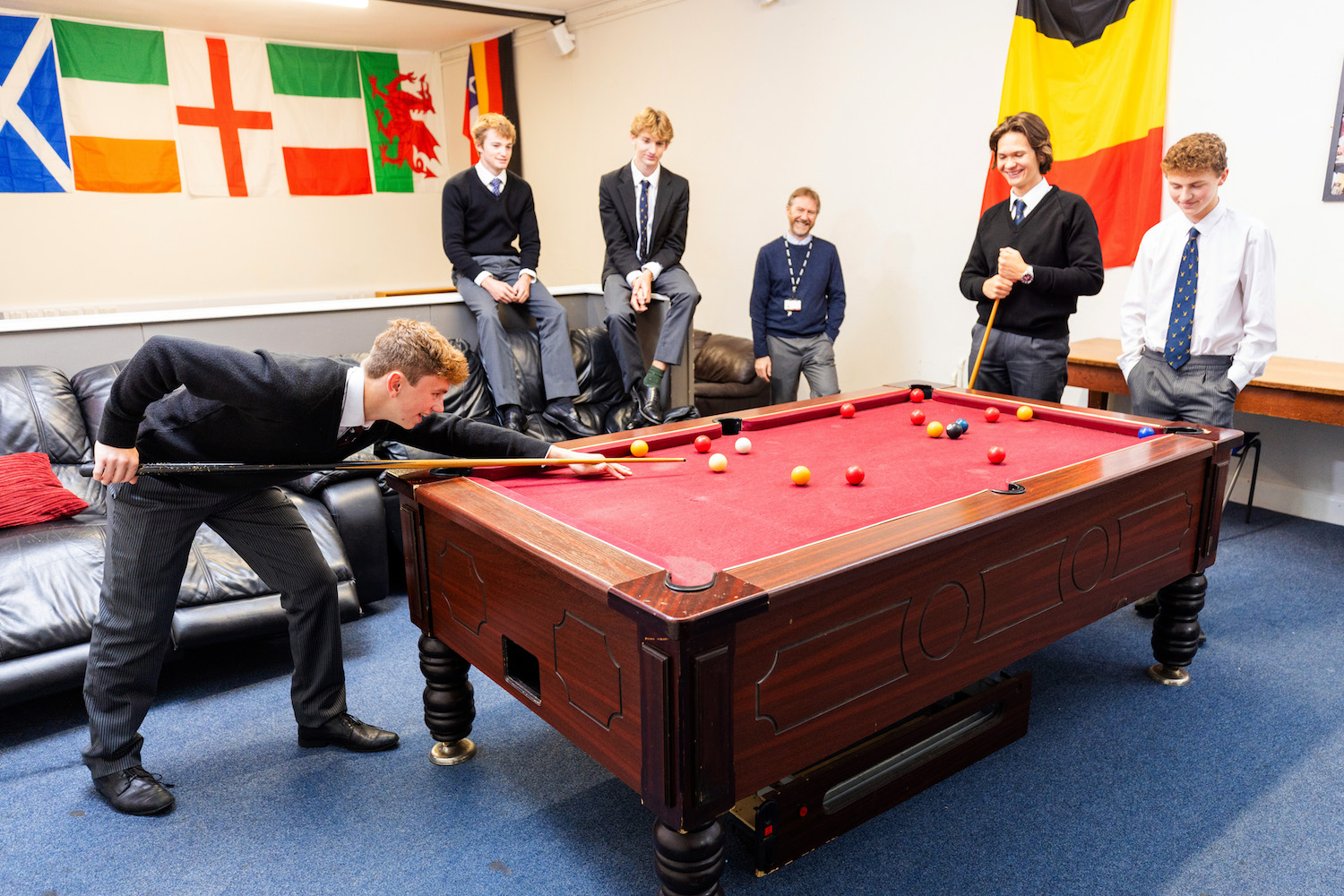
There’s a real boarding school culture here, with lots going on at weekends and all pretty much all pupils – day as well as boarders – sign up. Kids could be ice skating, taking trips to Bath, doing bush craft, paint balling or go-karting as well being able to use the school facilities like sports, art and DT which are open at weekends. Pupils take the lead in organising regular themed ‘feasts’, karaoke, bingo, film nights – and Eurovision is huge.
CO-CURRICULAR
Over 70 clubs and societies keep everyone busy, and include an environmental committee, bouldering, scuba diving, water polo, sailing, knit & natter, kayaking, golf, mountain biking, chess, Model United Nations and the Sixth Form’s St Theresa Society which focuses on community and service. Their Abingdon Debating Society is the oldest of any school in the UK; there’s a Junior version too.
Overseas pupils have their own committee and organise international cultural events like Chinese New Year and Oktoberfest.
QUIRKS & BOASTY BITS
Downside was a Finalist in the Giving Something Back category in the Muddy Best Schools Awards 2024.
The Downside Wall Game is an historic outdoor racquet and ball game played against a special (Grade I listed) wall, although the court is temporarily out of action.
They’ve got their own tank – the Combined Cadet Force (CCF) is very popular, with both Army and Navy divisions.
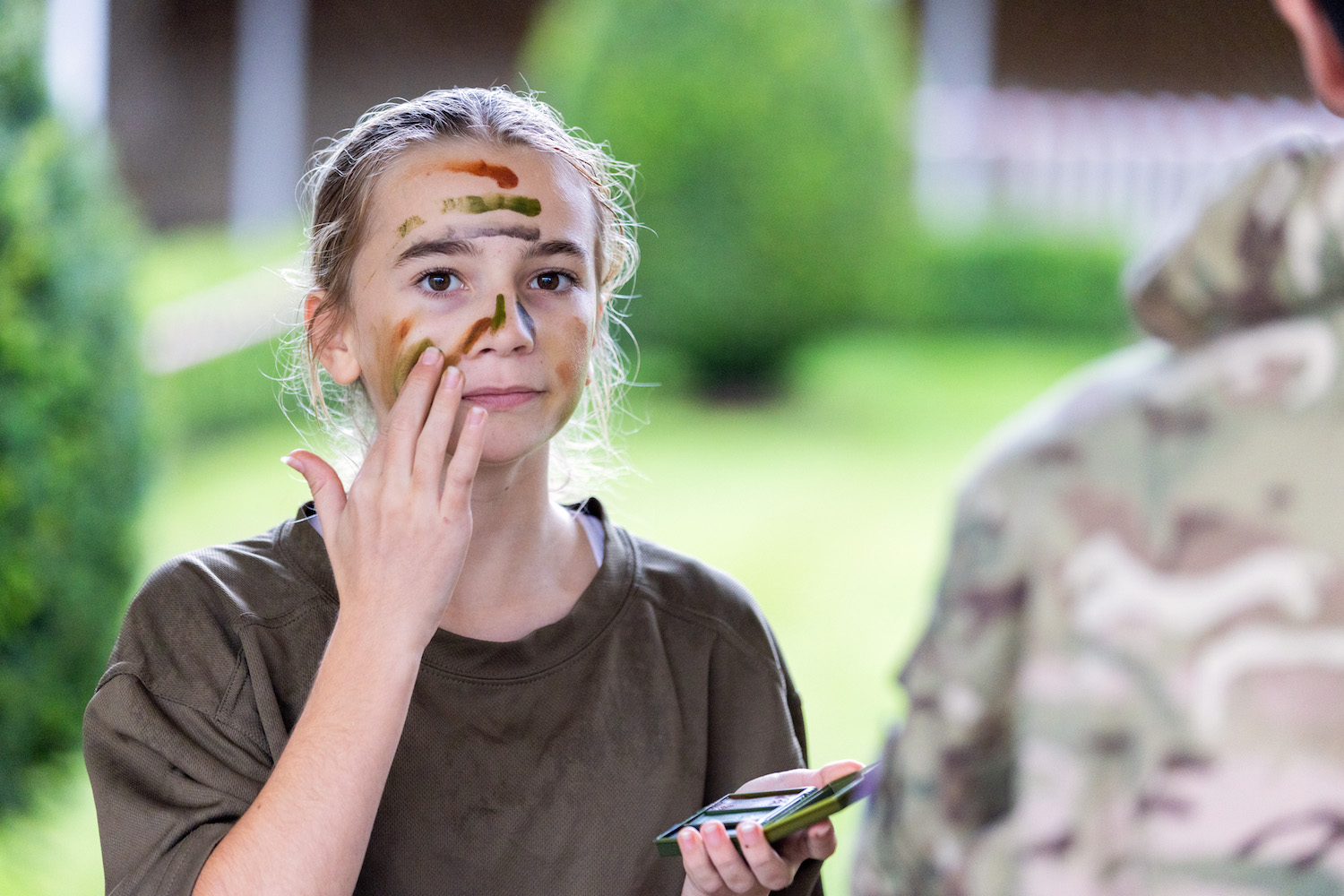
Turning things on their head, pupils have taught teachers to play a musical instrument or learn a new language.
It’s all in the uniform: all prefects get to wear a special waistcoat handmade by the school tailor with their striped black and grey trousers and dark blazer (much like a morning suit – and the boys love it) or tartan skirts.
A community groups programme, which is all about ‘giving back’, involves teaching languages to local primary schools, visiting a local care home, gardening and litter picks.
It’s outward looking: the Mendips Male Voice Choir come into the school to sing; there are fitness classes, quiz and curry nights for parents; they’re launching National Theatre Live screenings. Community choir – Downside Choral Society – is open to all.
Local primary schools are invited to engagement days to share the facilities and work with specialist teachers. Over 1,000 pupils have taken part in the programme since it began in 2022.
Pupils support the Help For Homeless charity in Bath by taking part in the weekly soup run and distributing food and provisions to those in need.
Pupils publish their own academic journal, Tessera and hold TEDx conferences.
Alumni are called Old Gregorians, after St Gregory, Downside’s patron saint.
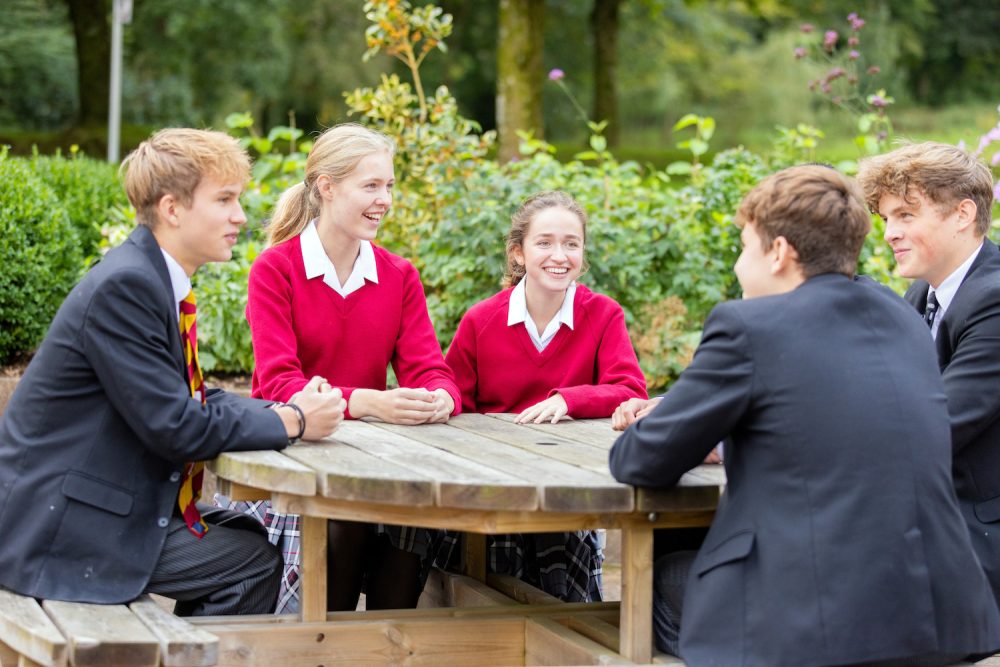
MOBILE PHONE POLICY
It’s hands off phones during the school day.
FEES
Fees per term 2025: Juniors (Year 7 & 8) day £7260 + VAT; full boarding £10,990 + VAT; Seniors (Years 9-13) day £8,790 + VAT; full boarding £14,490 + VAT.
WORD ON THE GROUND
We asked some parents (one of whom was a former pupil) with children from Year 9/Third Form up to the Sixth Form what they thought of Downside. The word that comes up again and again is ‘community’; the school is seen as welcoming, a family, a place where children feel at home. They say the school cares about the development of children as well-rounded individuals and celebrates their strengths. While there’s an intellectual rigour and those who want to exceed can, it’s not a pushy school and there’s always a place for those that come 4th; ‘failure’ is seen as an opportunity for growth.
Children feel included, part of the team and say they have good relationships with tutors, house parents/masters and teachers, who are described as conscientious, kind, good listeners who take the time to get to know everyone and offer support when needed. Pupils aren’t ‘fed Catholicism’ but the school’s underlying Benedictine values and spiritual ethos drives everything, promoting compassion, kindness and humility; all pupils are treated with care and respect. They’re getting excited about the new Sixth Form Centre!
THE MUDDY VERDICT
Good for: Anyone looking for a nurturing school with a strong sense of community and moral values; one that is steeped in history and traditions yet modern-facing and forward thinking. It’s gloriously rural but you’re close to Bath, Bristol Airport is only 40 mins away, and Heathrow is 2 and a half hours.
Not for: The high percentage of boarders might not appeal to some, though Houses are mixed day/boarders to avoid a ‘them and us’ scenario.
Dare to disagree? See for yourself on one of their Open Mornings. They host several a year, one dedicated to the Sixth Form and three for all year groups, and they include a guided tour, a recital in the Abbey church, lunch and the chance to meet some of the staff. Dates for 2025: Brand new Sixth Form Centre open evening – with supper – Weds 12 Feb. Open mornings Sat 8 March and Sat 10 May. For more info click here. Contact 01761 235103 or email admissions@downside.co.uk to arrange a personal visit.
Downside School, Stratton-on-the-Fosse, Radstock, Somerset BA3 4RJ. Tel 01761 235100.

Open in Google Maps
You may also like











